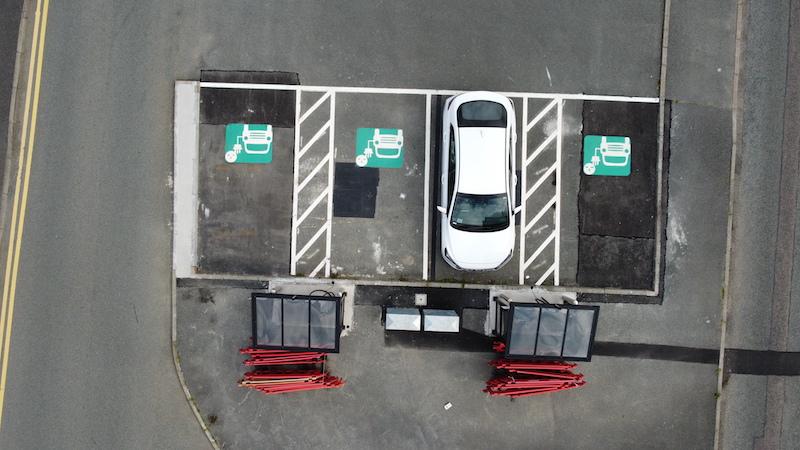Members at the Climate Change Committee approved the next move towards a partnership-based Highland wide EV (Electric Vehicle) infrastructure network.
The network will be achieved through a collaborative membership of local Scottish councils partnering with the private sector.
The report to the Climate Change Committee outlined progress taken to date and the next steps.
Members noted the report’s recommendations that there was a need to attract commercial investment to meeting the rapidly growing demand for EV charging as well as adapt to a changing funding landscape.
Approval was granted by members on progressing the project to Discovery Phase and thereafter to a formal procurement procedure.
The current EV public network model is placing budget pressure on the Council, and a change in the financial model approach aims to mitigate this pressure.
As the EV market develops, the Council has an opportunity to generate a long-term revenue to sustain and grow the network.
The Council believes its active involvement in the development of EV infrastructure will help to mitigate financial pressure on future budgets, should it be faced with addressing issues surrounding areas which may not be seen as commercially viable in relation to EV infrastructure installation.
To support a Just Transition for Highland, and in particular for rural/remote areas, the Council is taking a layered approach, which aims to bundle a range of charging options which can be procured together.
For example: layering the commercially viable hubs together with less commercially viable solutions such as on-street chargers in communities.
To speed up the development of new strategies and help identify charge point requirements across Scotland, funding has also been made available for six “Pathfinder Projects”.
The Pathfinder projects aim to identify the scope of works and preferred delivery model that can attract private sector investment.
In December 2021 Highland Council, in collaboration with Aberdeen City Council and Aberdeenshire Council, received Scottish Government funding to undertake a Pathfinder Project.
HiTRans and HIE (Highlands and Islands Enterprise) were also invited to become part of the collaboration.
The Pathfinder Project has provided a future expansion plan for EV public infrastructure for the Highland region and assessed various options for delivery models that would attract private investment.
Chair of the Climate Change Committee, Cllr Karl Rosie, said:
“The private sector is very keen to invest in any networks and see that there will be returns if a 15–25-year contract is awarded for the operation and maintenance of these.
“They are happy to take part funding to help de-risk, but some are willing to pay for 100% of the capital investment for the right number, location, and length of contract.
“Private sector funding will be crucial going forward.”
He added:
“The desired outcome of the project will be to maximise the ability to access support funding.
“The solution will address public needs and types of charging structure options as well as the need to have a council private EV charging network/public sector solution with the minimum of funding exposure to the Councils.”
The Pathfinder Project in Highland will deliver information on the options against which the Council can make educated choices and set out its clear EV road map and preferred associated commercial structure/s.
Today’s approval by members to progress to the Discovery Phase will allow a Discovery project team to take forward these choices/preferences and develop them further through market consultation.
A PIN (Prior Information Notice) would then be issued sometime during the fourth quarter of 2022 and then the project will progress to a formal procurement procedure based on the findings and recommendations from the Discovery Phase.
There is a need to move at pace to secure funding as well as develop a strong position on an evolving market.
The initial steps in this work will consist of:
- Discovery phase to PIN prior to end 2022
- First stage commitment phase – to be named on the PIN
- Selection phase – start with PIN notice interviews and draft Business Case March 2023
- Tender pack, consultation with the private sector leading to a procurement exercise to select successful bidder end 2023
- Implementation phase from 2024
Both the Scottish and UK Government have pledged to phase out the need for new petrol and diesel cars and vans by 2030.
Highland Council currently owns and operates over 85 charge points throughout the region, and there are additional projects in progress which will see a further 23 installed by Autumn 2023.
Currently, the tariff applied for using Highland Council EV charge points does not cover the total amount of costs associated with management and future of the estate and grant funding is coming to an end.
In another paper to the committee, Members deferred considering options for a potential tariff increase for Highland Council EV charge points to the next meeting of the Climate Change Committee.



